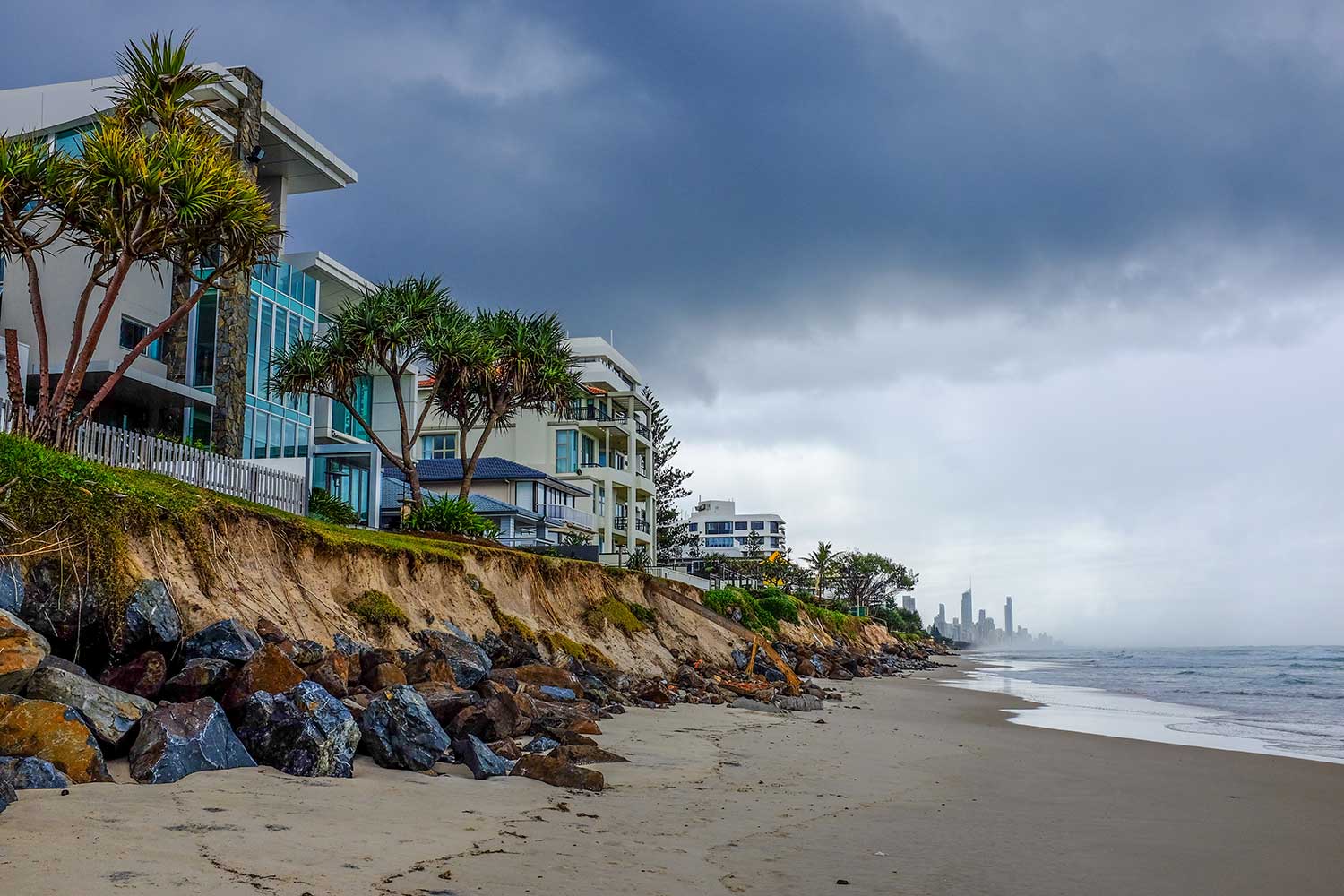On 6 April 2015 Griffith University hosted TEDxGriffithUniversity. The event, which showcased the extraordinary achievements of a range of thinkers, business leaders, scientists and adventurers, was based on the theme ‘Knowledge is…”
Dan is a coastal specialist working on a PhD in coastal management within the Griffith Centre for Coastal Management. His research focuses on the implications of coastal management policy for distribution of political power between coastal user groups such as surfers, developers and property owners. Dan also teaches environmental economics and environmental policy development and works as a researcher on climate change adaptation and coastal management projects. Dan is currently a director of Surfrider Foundation Australia, a member of the Queensland Committee of the Australian Coastal Society and President of Gold Coast Surf Council.
Transcript
If I was to measure your pulse while you stare at the screen it would noticeably slow as you relax. So as an anxious speaker it’s a handy tip. But at the same time if you were to live by this or similar coastline in a developed country anywhere around the world, your general health and well-being would be better than the rest the population and because coastal properties worth more than property as a whole, you also be financially better off so ironic then isn’t it that a place that makes as healthy, wealthier and more relaxed could be in any trouble at all. But trouble it is in.
So we’ve got more than three decades of government reports into the state of coastal environments and they all tell us one very simple thing: urgent reforms of coastal governance is required yet we’ve been unable to make much progress.
You see as the reports pile-up, coastal habitat is lost in an alarming rate and at the same time the damage bill from storms leaves States bankrupt and damages GDP. So I’d call this the great coastal tragedy and today I want to explore this tragedy through three words fear, truth and love.
Fear is where this tragedy begins; truth is the false hope of a solution that’s misleading and love is where I feel there’s a conclusion.
You see for our society how we choose to control, to construct a relationship with the coast is within our control but it’s a competition between these three ideas for the coast, fear, truth in love, that decides our relationship.
That beaches exist at all is because of erosion, not in spite of it. So when our policy for the coast frames erosion as a hazard, the force for creation has become a problem.
And before we know it when we have storm events the media is quick to report this issue as a disaster or surprise; we see politicians waving shovels on sea walls at a vengeful and cruel sea; we have residents standing sad faced at a fence lost to the waves. The trucks roll in and before we know it with talk locked in a titanic battle.
You see fear is distracting us from the one thing that’s inevitably clear if we reject fear.
The fact that governments can be so captured by development as to allow the construction of houses on sand dunes makes it……………..it’s something that we could have learned from King Canute a long time ago.
You see we’re still trying to hold back the tide, and we are still kidding ourselves that we can.
The next idea is truth. Science we are told is the search for knowledge to the exclusion a values. So under these paradigms when the local surfer or fishermen speaks of the coast he lacks the objectivity to be trusted and can readily be dismissed by governments. So when faced with the tragedy of the coast the solution from science has been an idea called integrated coastal management.
Integrated coastal management tells us that the tragedy the coast is a problem of planning in the absence of knowledge. This is a really irresistible concept to governments because it allows us to maintain the status quo in the false hope that through more investment in science and better planning we can find solutions.
So in 1992 at the Rio conference on environment 178 countries around the world signed up to these irresistible proposition of using integrated coastal management as the basis for continued development of coastlines around the world.
You see if we fast-forward twenty years to 2012 when the UN reviewed progress on the issues that it raised the 1992 it found that all of the problems that were raised in 1992, despite twenty years integrated coastal management, remained or had worsened in that time.
I’d say this is pretty clear evidence of a flawed theory yet the proponents have integrated coastal management will argue that it was politics and population growth that where the cause of its lack of traction. So for me any theory that tells us how to solve environmental problems in the modern world that lacks the capacity to deal with population growth and politics is biased on some pretty
on stable ground.
So if fear and truth fail us what’s the alternative?
Well I say it is love.
Anytime I tell someone what I do for a living they inevitably respond with the straight fact I really don’t understand this coastal management thing but geez I love the beach.
Communities are engaged far more by positive messages than from negative ones.
We need new ideas here. I ask a question, do we really love the beach?
To find my answer I consulted Google and the analysis is in and it’s pretty clear. Yes we do. More than any other landscape the beach is a place we love. So with all that love why is it then that beaches can be in any trouble at all?
You see, just as the ancient South American people sought to build temples to bring themselves closer to the Sun God that they worshipped, we continue to build our monuments to the coast ever closer to the to the shoreline. In doing this the answer to the paradox of the coast is really quite simple.
Our shared narrative of love has been captured by fear and the illusion of a singular truth. And as governments adopt pro-love policies of the coast they’re accused of creating green tape, being anti-development or the greatest sin at all devaluing coastal property.
The media largely ignores love. In the media the coast is framed through shovels, sandbags, jobs, development, erosion and disaster. It’s all unhappy faces and post-storm problems.
So I’d argue that the coast is much an idea as a place. As an idea each of us can play a part in how we choose to construct the coast. Coastal manages when they choose surf management plans over shoreline erosion management plans choose love over fear. When journalists asked different questions of the coast, when they reframe the debate, from fear to love they are part of the solution.
Governments can find spaces to lead here, when they make space for discussing coastal policy in the good times and not after storm events we can have far more pragmatic discussions that find serious solutions.
Universities too can teach their coastal management graduates a little about the humanities. Families
and beach lovers can keep doing what they’re doing and love the beach and question the way that the stories are reported in the media and why the government’s talk to us about the coast.
Finally too many my colleagues you will say to me that choosing love impractical. Particularly for the coastal planner who is faced with dealing with an erosion problem on a shoestring budget.
But I’d say to you that while term like coastal management described our ambition to control the coast, it’s not the coast but us that we have the opportunity to control.
Thank you very much.





